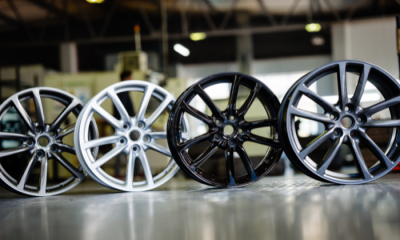
You’ve done your homework. You know what kind of car you want, what the fuel consumption is and what the safety features are. Your current vehicle is out of warranty, the services are getting expensive and it’s time to make a change. Luckily, you have a good income, and you can afford to splurge on a brand-new car.
But before you take the final step, there is one more item that most people overlook when finalising their decision. And it could make a difference to your bottom line. Have you factored in the cost of monthly insurance for your new wheels?
Premiums are dependent on several factors
You may be forgiven for thinking that car insurance premiums are based on the Rand value of the vehicle only, but this is not always the case. There are several factors that insurance companies look at when calculating your premiums such as:
The make and model of the vehicle
- Some vehicles, like sports cars, are more likely to be driven at speeds while other cars may be more expensive to insure because they are statistically at higher risk of being stolen.
- Further, some vehicles may not have great safety features which can result in higher premiums.
- Then there are cars whose high-tech features will be costly to repair if damaged. That can also push premiums up.
- Premiums can also increase if there’s a likelihood that the car could cause significant injury to a third party in a collision which the insurer could be liable for.
- Engine size could also affect the cost of premiums as more horsepower may be viewed as more dangerous.
With so many different kinds of cars now on the road, from classic to electric, don’t assume the cost of the insurance. Rather find out.
Solution: Make a shortlist of the cars you like, then get quotes for that specific vehicle. This way you are informed about premium charges before you commit to buying. Ensure that you provide all the car specs to the insurer, including any modifications you are thinking of adding. Ask the insurance company what additions will bring your premiums down (for example, a reputable car tracking service).
The drivers of the vehicle
If you are buying a brand-new car with the intention of having your teenage son or daughter also drive it, then be aware that this may push your insurance premiums up. Younger drivers are seen as more of an accident risk by insurers, and it doesn’t really matter how well they drive or if they are driving a family-friendly vehicle – their age will be used as a measurement of probability and your insurance premium will go up.
Solution: If your teenagers are going to drive the vehicle, opt for a less expensive car so that you have the budget to spend on getting comprehensive insurance. Otherwise, keep the car off limits to younger members of the family and rather use a ride-share app, like Uber, if you cannot make the time to drive them.
Parking for the vehicle
Believe it or not, where a car is parked overnight or when it’s not in use can also change your insurance premium. Will the car be parked in a lock-up garage? Is the garage in a secure complex or estate? Does the complex have remote-controlled gates, security guards, and CCTV? These are all factors that an insurance company will consider when calculating the insurance premium for a new car.
Solution: Give your insurer all the details regarding how secure your vehicle will be. Remember that insurance companies will also look at where you live and what the rate of crime is in the area. If you’re aware of theft or hijackings in the area where you will be parking your car, consider a less expensive car or budget for a higher insurance premium. Alternatively, consider bundling your car and home insurance together as some insurers may discount your premiums if you insure both your car and your home with them.
Is one insurance policy on your new car sufficient?
For many new car owners, the thought of a bad accident happening on the very day they get their new car is a nightmare situation. After all, you’re looking forward to going out in your new wheels and no one expects that their first, second, or third drive will end in tears. But most new cars depreciate the moment that they are driven off the showroom floor.
If your new car has been financed through a loan, and it is in an accident (or theft) soon after you take possession of it, what the insurance will pay you (market value) may not cover the full amount you owe the bank. This is why many new car owners should consider taking out a gap cover. It may seem like it’s not really necessary, but you will be thankful for it if the worst does happen!
Conclusion
Buying a new car is an exciting and fun moment in any motorist’s life – from that new car smell to the fancy gadgets your old vehicle may not have had. But it pays to do your homework because a car is a substantial purchase that you may drive for quite some time. The last thing you want is to be paying an insurance premium monthly that you didn’t expect, and you didn’t budget for.
Disclaimer: This content is for informational, educational, or entertainment purposes only. We do not make any warranties about the completeness, reliability, and accuracy of the content. The views and opinions are those of the author and not necessarily those of the company.




